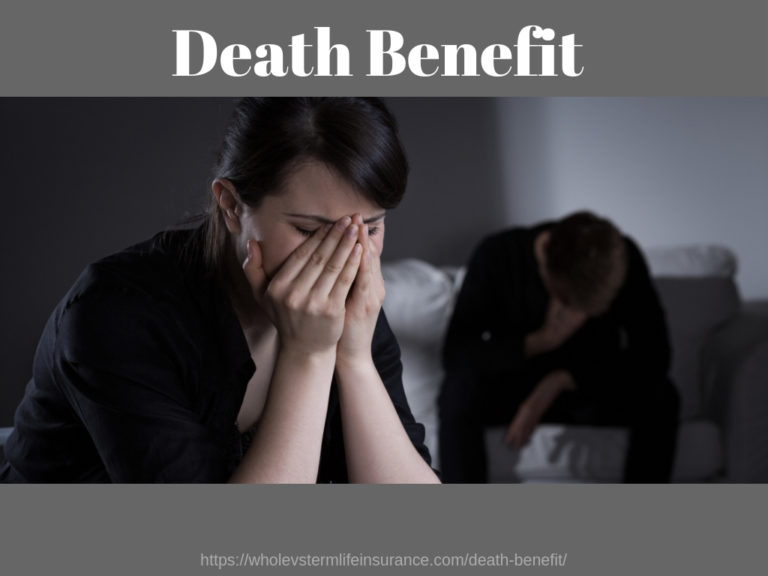When it comes to homeowners insurance, the concept of a death benefit may not be immediately apparent. However, there are certain scenarios where a homeowners insurance policy can provide some level of financial protection in the event of the policyholder’s death. In this article, we’ll explore the relationship between homeowners insurance and death benefits, and what you need to know to ensure your loved ones are protected.
Understanding Homeowners Insurance Coverage
Before diving into the specifics of death benefits, it’s essential to understand the primary coverages provided by a standard homeowners insurance policy. These typically include:
- Dwelling Coverage: This covers the physical structure of your home, including any attached structures like garages or decks.
- Other Structures Coverage: Covers detached structures on your property, such as sheds, fences, or gazebos.
- Personal Property Coverage: Protects your personal belongings, including furniture, electronics, and clothing.
- Loss of Use Coverage: Provides reimbursement for additional living expenses if your home becomes uninhabitable due to a covered loss.
- Liability Coverage: Covers legal expenses and damages if someone is injured on your property or if you accidentally cause damage to someone else’s property.
- Medical Payments to Others: Provides coverage for minor injuries sustained by guests on your property, regardless of fault.
It’s important to note that homeowners insurance policies typically do not provide a direct death benefit to the policyholder’s beneficiaries. However, certain coverages within the policy can offer some financial protection in the event of the policyholder’s passing.
Liability Coverage and Death Benefits
One area where homeowners insurance can provide a form of death benefit is through liability coverage. If the policyholder is found legally responsible for someone’s death due to an accident or negligence on their property, the liability coverage can help pay for the following:
- Medical Expenses: If the deceased individual required medical treatment before passing away, liability coverage can help cover those costs.
- Funeral Expenses: In some cases, liability coverage may help cover reasonable funeral expenses for the deceased.
- Legal Defense: If the policyholder is sued for the death, liability coverage can provide legal defense and pay for related court costs and settlements.
It’s important to note that liability coverage limits can vary significantly, with typical limits ranging from $100,000 to $500,000. If the damages exceed the liability coverage limit, the policyholder may be personally responsible for the remaining costs.
Mortgage Life Insurance
While not directly related to homeowners insurance, some homeowners may have a mortgage life insurance policy attached to their mortgage. This type of policy is designed to pay off the remaining balance of the mortgage if the policyholder passes away. In this scenario, the death benefit would go directly to the lender, ensuring that the mortgage is paid off and the home is not at risk of foreclosure.
It’s important to note that mortgage life insurance is a separate policy from homeowners insurance and is typically an optional coverage that comes with an additional premium.
What Happens to Homeowners Insurance After the Policyholder’s Death?
When a homeowner passes away, the existing homeowners insurance policy does not automatically transfer to the new owner or beneficiary. Most insurance companies require notification of the policyholder’s death within a specific time frame, typically 30 days.
If the new owner or beneficiary fails to notify the insurance company within the specified time frame, the policy may be canceled, leaving the property uninsured. It’s crucial to contact the insurance company as soon as possible to discuss the options for transferring or obtaining a new homeowners insurance policy.
In some cases, the insurance company may allow the existing policy to remain in effect until its expiration date, provided that the premiums are paid on time. However, a new policy will need to be purchased upon renewal, with the new owner or beneficiary listed as the policyholder.
Tips for Inheriting a Home and Transferring Homeowners Insurance
If you’ve inherited a home after the policyholder’s passing, here are some tips to ensure a smooth transition of homeowners insurance coverage:
- Notify the insurance company immediately: Contact the insurance company as soon as possible and provide them with a copy of the death certificate.
- Inquire about coverage options: Ask the insurance company about your options for maintaining coverage during the probate process or transferring the policy to your name once you officially own the property.
- Don’t let the home become vacant: If the home will be vacant for an extended period, inform the insurance company, as they may require additional coverage or endorsements to protect against increased risks like vandalism or theft.
- Shop around for new policies: Once you officially own the property, it’s recommended to shop around and compare quotes from multiple insurance providers to ensure you’re getting the best coverage at the most competitive rate.
Conclusion
While homeowners insurance policies do not typically provide a direct death benefit to the policyholder’s beneficiaries, certain coverages like liability protection can offer financial assistance in the event of an accidental death on the property. Additionally, mortgage life insurance policies, though separate from homeowners insurance, can help ensure the mortgage is paid off if the policyholder passes away.
If you’ve inherited a home after the policyholder’s death, it’s crucial to notify the insurance company promptly and discuss your options for maintaining or transferring coverage. By taking the necessary steps and being proactive, you can ensure that your inherited property remains protected and that your loved ones are not left with unexpected financial burdens.
Does Mortgage Insurance Cover Death of Spouse? Does Home Loan Insurance Cover Death?
FAQ
What happens with homeowners insurance when someone dies?
Does homeowners insurance have a beneficiary?
What type of insurance covers death of owner?
What happens when the policyholder dies?

